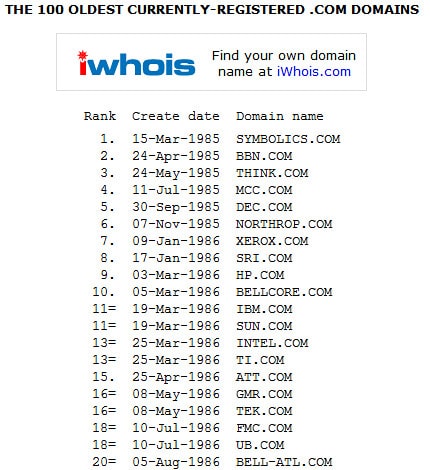In today’s business environment, domain names and websites are often key assets when a target company is being acquired during a merger/acquisition. Due diligence with respect to the domain name(s) and any websites is essential. In general, due diligence is the process by which the buyer verifies various aspects of the transaction. Due diligence is needed for any type of M&A whether the deal is structured as an asset purchase or an equity transfer.
Domain name due diligence requires specialized attention. Domain name due diligence is separate and distinct from website due diligence, which involves verifying traffic, search engine optimization, revenue generation, operational costs, technical aspects, etc. Domain name due diligence is much narrower and involves verifying the following:
- Current title/right to use and chain of title — checking WHOIS records and verifying registration dates
- Transferability of ownership
- Research regarding seller’s related but unused domain name registrations
- Review and research for potential trademark infringement claims related to the domain name
- Review of domain name landscape for infringing similar names
For each category, the seller should provide the relevant information that can be confirmed by the buyer. For example, the seller should provide a list of all domain names registered, whether in use or “parked.” The information must identify who is the registrar, the current registrant, the history of the domain name and who holds current administrative rights. In general, domain names are not “owned” in the traditional sense. Domain names are allowed or authorized by a not-for-profit organization called the International Corporation for Assigned Names and Numbers (“ICANN”). ICANN authorizes commercial businesses, like GODADDY.com, to assign domain names. Such companies are called “registrars” and the person or entity to whom the domain name is assigned is a “registrant.” A registrant has the right to use the domain name. The registrant is often the same person/entity who has administrative control — that is, the administrator who can make or request changes related to the domain name.
It is important to verify that the seller is the current registrant, the current administrator and that the seller has a good “chain of title” going back to the original registration of the domain name. If not, Seller should be required by the Purchase Agreement to provide documentation sufficient to clear any title irregularities and ensure that the buyer obtains verifiable status as the registrant and administrator. In general, to clear title, Seller should provide relevant Transfer/Assignment of Domain Name Agreements or Releases of Claims to Domain Name. Due diligence with respect to right to use and chain of title will also verify the ability of the seller to transfer rights to the domain name to the buyer.
The seller should provide a similar list with respect to potentially infringing domain names. The seller is in the best position to know what domain names have been created to compete with and potentially syphon off traffic and revenue. The buyer should verify this list and conduct independent research. Attention should focus on domain names that are the same except for different extensions like .net, .org, etc.
In addition, each category should be covered by seller representations and warranties. For example, with respect to trademark infringement, a sample seller representation and warranty might look like this:
Representation and Warranty: SELLER has the sole right to use the Domain Name and the Domain Name and SELLER’s use of the Domain Name has not and does not infringe upon any trademark rights held by any third party. SELLER has received no notice — formal, informal or otherwise — that the Domain Name or Seller’s use of the domain name has violated or is violating the trademark rights of any third party.
The buyer should, of course, take steps to verify that the domain name is not infringing on trademarks in the relevant marketplace. Buyers should also consider whether hold harmless and indemnity provisions are needed with respect to potential IP infringement claims.
Contact Revision Legal
For more information about domain name due diligence or other legal issues related to internet law and M&As, contact the trusted internet lawyers at Revision Legal at 231-714-0100.




